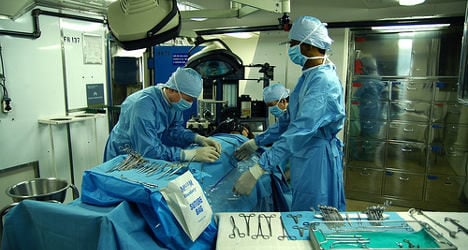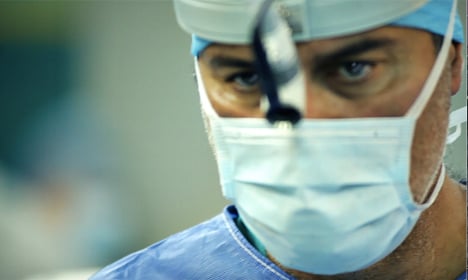The head of obstetrics and gynaecology at Torrevieja Hospital in eastern Spain, Eduardo Cazorla, “said that in his 20-year career he had never treated such a case”, the hospital said in a statement.
It said that scientific publications recorded only about five cases of such giant tumours — defined as bigger than 11.3 kilograms — in the world.
The woman was referred to the hospital by her family doctor after complaining of discomfort and weight gain in her torso.
Doctors detected a “giant cystic tumour”, 41 centimetres (16 inches) long, and removed the woman’s womb and both ovaries in a two-hour operation, extracting the entire growth in the process.
“This type of operation is highly complex, given the distinctive size of the tumour,” the hospital said.
“After five days in hospital and about three weeks’ rest the patient completely recovered,” it added.
It did not say exactly when the operation took place.
If you really want to see pictures of the tumour, click here.



 Please whitelist us to continue reading.
Please whitelist us to continue reading.
Member comments